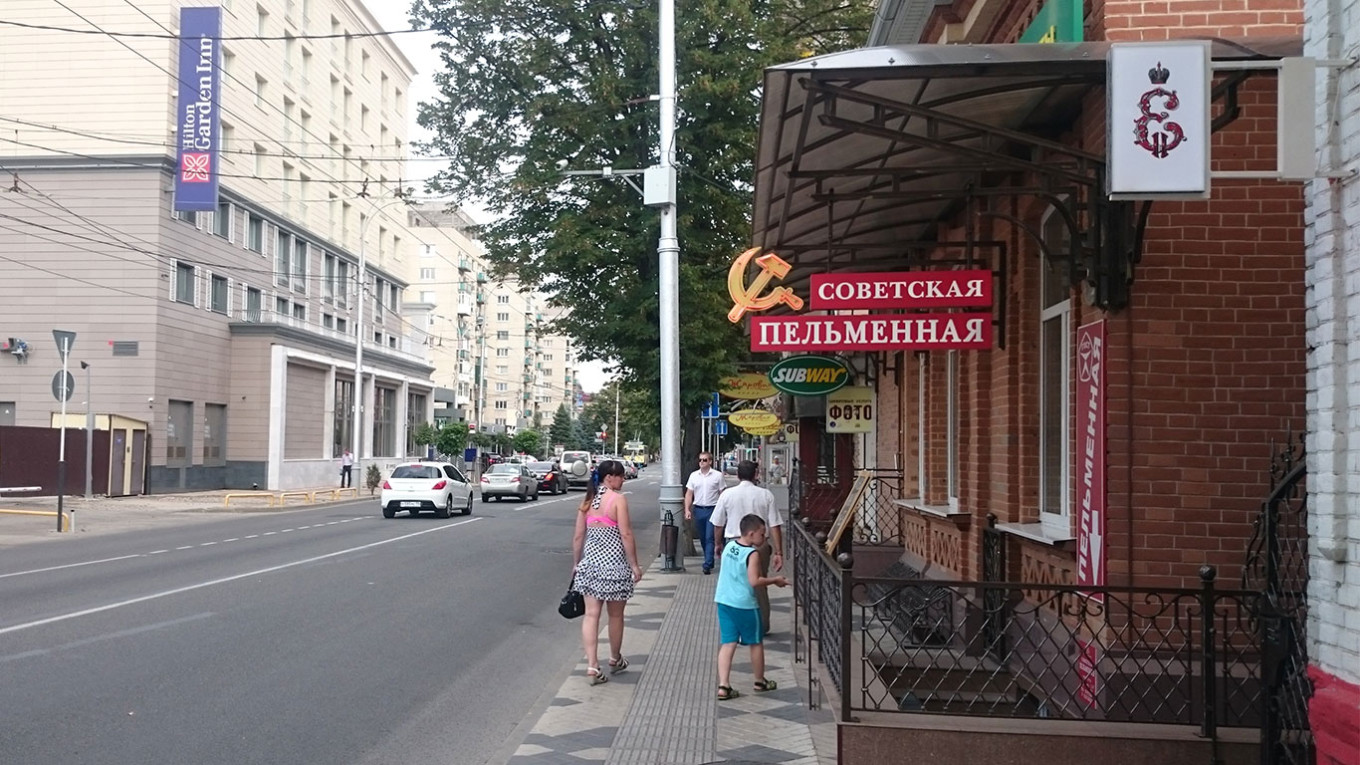Authorities in the southern Russian city of Krasnodar on Monday banned the use of foreign languages on public signage, local media reported.
Krasnodar's legislative assembly voted in the new rules, which will come into effect on Sept. 1.
Mayor Yevgeny Naumov said that the changes would help unite “the architectural appearance of the regional capital in a single style.”
Russian officials often call for restrictions on the use of foreign languages, but, since the start of the war in Ukraine, such ideas have gained new traction as the government casts itself as protecting Russian culture from Western influence.
Only officially registered trademarks will be excluded from the new requirements in Krasnodar.
Once the rules come into effect, businesses will have a year to install replacement signs.
Naumov said in March that the political situation in Russia made the presence of signs in foreign languages “not very patriotic.”
“In London, Washington, 90% of signs are probably not in Russian,” he told local media at the time, claiming that “every second” business owner in Krasnodar would be happy to change their signs to Russian.
Earlier this year, President Vladimir Putin signed a law banning government officials from using foreign words in official documents and correspondence.
The only exception to the law was “foreign words which do not have widely used corresponding equivalents in Russian.”
A Message from The Moscow Times:
Dear readers,
We are facing unprecedented challenges. Russia's Prosecutor General's Office has designated The Moscow Times as an "undesirable" organization, criminalizing our work and putting our staff at risk of prosecution. This follows our earlier unjust labeling as a "foreign agent."
These actions are direct attempts to silence independent journalism in Russia. The authorities claim our work "discredits the decisions of the Russian leadership." We see things differently: we strive to provide accurate, unbiased reporting on Russia.
We, the journalists of The Moscow Times, refuse to be silenced. But to continue our work, we need your help.
Your support, no matter how small, makes a world of difference. If you can, please support us monthly starting from just $2. It's quick to set up, and every contribution makes a significant impact.
By supporting The Moscow Times, you're defending open, independent journalism in the face of repression. Thank you for standing with us.
Remind me later.






